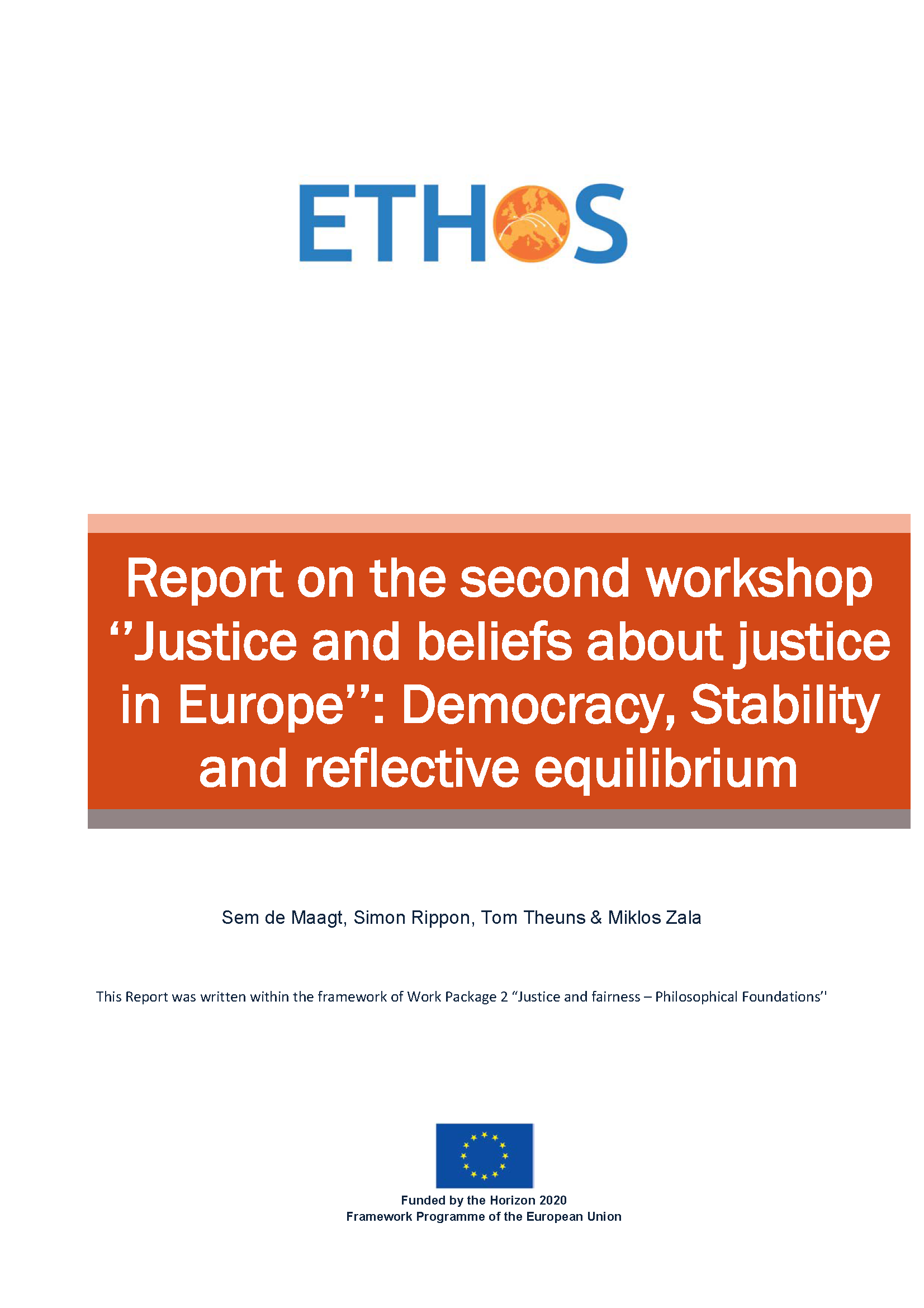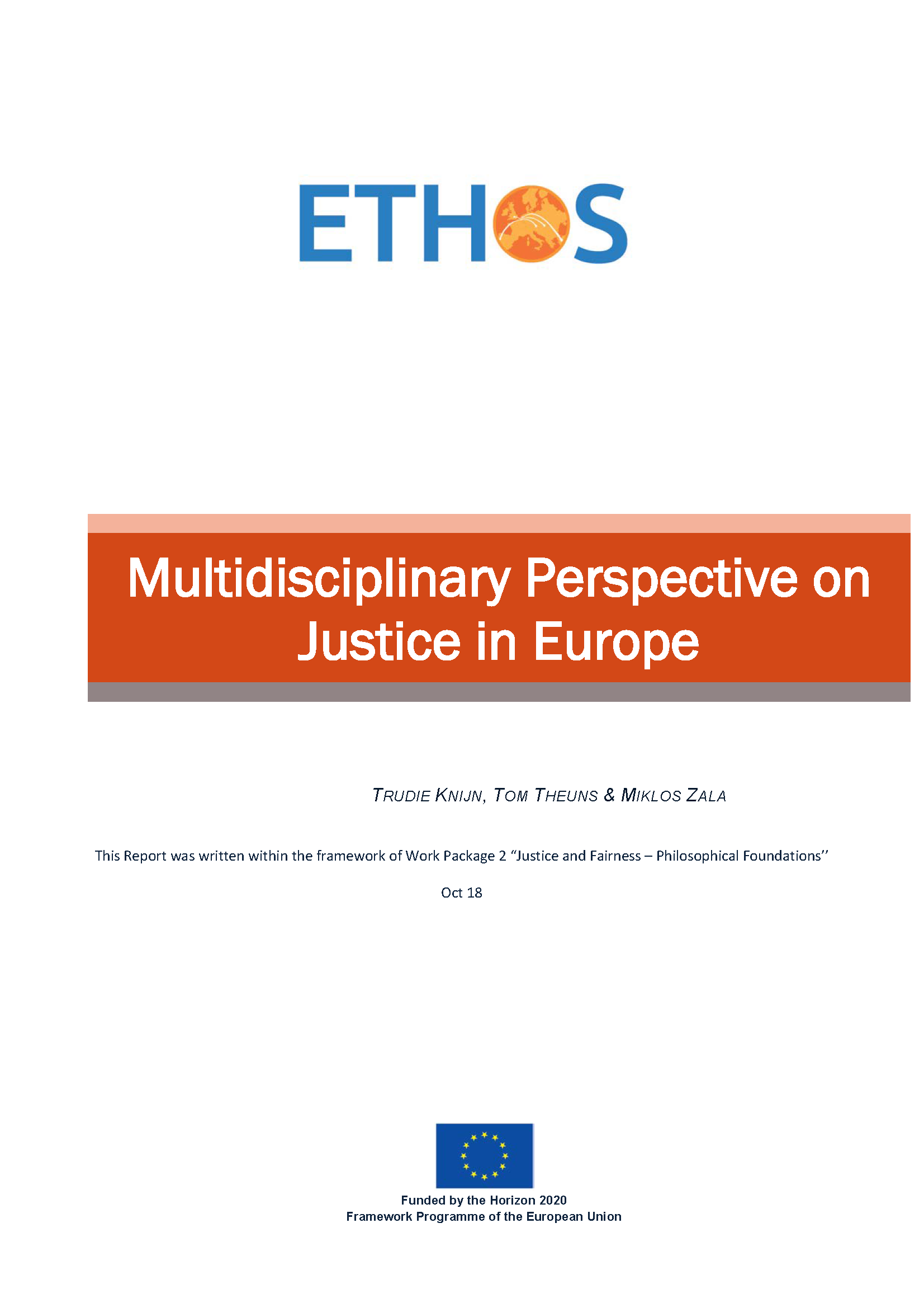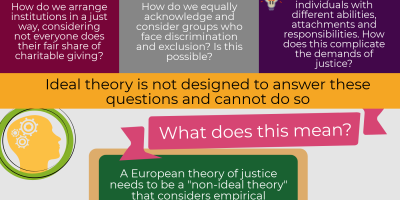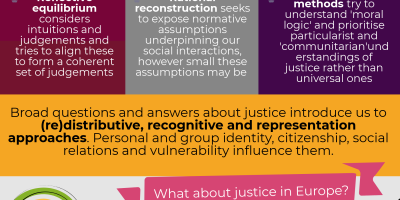Justice and fairness – philosophical foundations (WP2)
This subproject provides common - normative - background and a shared vocabulary for inter-disciplinary theorizing about justice and fairness within ETHOS. It reviews and assesses the primary concepts and theories of justice and fairness discussed in historical and contemporary (European) political philosophy, including representation, redistribution and recognition. It also engages an inter-disciplinary dialogue about justice and fairness in order to provide a philosophical framework for better understanding the relationship between normative theories of justice and justice as social fact embodied in the discursive construction of justice in contemporary Europe, institutionalization of justice in European and national laws, subjective experiences of (in)justice and struggles for justice.
Leading partners: CEU/ UU; leading researchers: Simon Rippon/ Bert van den Brink

This project has received funding from the European Union’s Horizon 2020 programme under grant agreement No. 727112




